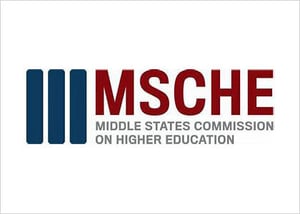
Quick Overview
Key Advantages
location (Washington, D.C.); diverse program choices (including STEM and healthcare-related programs); lower tuition cost; low student-faculty ratio
History and Accreditation
Established in 1989, University of the Potomac is accredited by the Middle States Commission on Higher Education. Originally named Potomac Educational Foundation, it became Potomac College in 2006 and University of the Potomac in 2013. As a fast-growing institution of higher education, University of the Potomac currently offers three Doctoral degrees, nine Master's degrees, and sixteen Bachelor of Science degrees, with a strong concentration in management, information technology, and business.
With a campus located in the central area of Washington, D.C., only three blocks from the White House, University of the Potomac provides students with great opportunities to develop their career paths in business and management. In addition to career support, the university features a 7.12 student-to-faculty ratio, which guarantees its academic quality.
University of the Potomac offers a hybrid teaching model, making it competitive in flexible learning. With its strategic location, academic quality, flexible learning, and program settings, it is a great option for both domestic and international students who want to advance their careers in the United States.

- Academic Policy
- CPT Policy
- On-Site Policy
- Tuition and Scholarship
Academic Policy
-
University of the Potomac (UOTP) offers 6 enrollment windows per year.
-
Master's programs require the completion of 36 credits, while doctoral programs require 60 credits. The academic year is divided into three semesters, with students required to complete 6 credits (two courses) each semester.
-
One academic year consists of 3 semesters, each of which includes 2 terms. Students need to take at least 2 semesters per year, so they can take a 4-month break if they choose not to study in all 3 semesters of a year. There will be no gap between CPT authorizations.
-
Online classes are recorded, offering students great flexibility in their learning.
CPT Policy
-
CPT Work Hours: up to 40 hours per week
-
CPT Application:
-
CPT agreement (including employment start date)
-
The employer must be 70 miles within the student's home address
-
-
CPT Renewal Policy: Students need to renew their CPT annually
On-Site Policy
-
Hybrid Format: most classes can be completed online by watching recorded class videos; besides online classes, students are required to attend on-site classes biweekly. Onsite classes are held every other Saturday.
-
Mandatory Onsite Class for International Students: Failure to attend on-site classes can result in the termination of F-1 student status.
Tuition and Scholarship
|
Programs |
Cost per Credit |
Credits |
Total Cost |
Annual Average Tuition |
|
Master's Programs |
$900 |
36 |
without scholarship: $34,200 with scholarship: $22,250 (maintaining 3.0 GPA) |
$11,125 |
|
Doctoral Programs |
$517 |
60 |
$35,520 |
$88,80 |
Other Fees:
-
International Application Fee (Contact us to waive) - $100
-
I-20 Mailing Fee: $100
-
Registration Fee: $100
-
Portfolio Fee: $100
-
Graduation Fee: $100
-
Each 3-credit graduate course includes a $150.00 technology fee; each 3-credit doctoral degree course includes a $225 technology fee.
-
Estimated Book Costs: $500 per semester for Master’s degrees; $750 per semester for doctoral degrees.
*no additional fee for CPT
Scholarships:
-
Multiple Family Member University of the Potomac Scholarship:
-
families with more than one member attending UOTP concurrently can get a scholarship equal to a 20% reduction in the credit hour tuition rate in effect at that time.
-
-
Good Hope Scholarship
-
Recipients will receive $1,000 per year for their studies at UOTP toward costs not covered by other financial aids and the expected family contribution.
-
-
International Students Tuition Scholarship Program
-
This scholarship covers up to 35% of tuition for new full-time international students; it is renewable annually based on academic performance.
-
-
Alumni Graduate Student Scholarship:
-
Current graduate students who already completed an undergraduate or graduate program at UOTP are eligible for this $2,000 scholarship, which requires a 3.0 GPA.
-
-
Alumni Doctoral Student Scholarship
-
Current doctoral students who already completed a graduate program at UOTP are eligible for this $2,000 scholarship, which requires a 3.0 GPA.
-
Day 1 CPT Program
- Master's programs :
- Requires completion of 36 credits;
- Typically finished in an average of 2 years;
- Can provide up to 2-3 additional opportunities for H1B lottery.
- Doctoral programs :
- Requires completion of 60 credits;
- Typically finished in an average of 4 years;
- Can provide up to 3-4 additional opportunities for H1B lottery.
Reminder: “Day 1 CPT schools” are educational institutions that allow eligible F-1 students to begin CPT from the first day of their academic program. However, "Day 1 CPT" is not a officially defined term. To receive CPT authorization, students must meet specific academic criteria and submit all required documentation. Once the application is submitted, the review process typically takes between 5 to 15 business days.
UOTP's MBA program prepares students to become proficient in crucial business areas such as accounting and finance, management, marketing, and operations. Students will be equipped to identify and address challenges in both U.S. and international business contexts and will possess the knowledge and skills necessary to excel as managers in U.S. business organizations, non-governmental organizations, and international entities.
Students need to complete 8 core courses (24 credits) and 4 selective courses (12 credits) from a concentration of their choice. The MBA program provides 16 concentrations for students to choose from.
8 Core Courses (24 credits):
- BUS 501 Managerial Accounting
- BUS 502 Managerial Economics
- BUS 503 Managerial Finance
- BUS 510 Strategic Management
- BUS 520 Human Resources and Organizational Behavior
- BUS 530 Marketing Management
- BUS 560 Management and Information Systems
- BUS 570 Business Ethics
16 concentrations (each consists of 4 selective courses) :
- Accounting
- Artificial Intelligence
- Amazon Web Service
- Computer Informatics
- Education
- Finance
- Geospatial Intelligence
- Healthcare Administration
- Hospitality and Tourism
- Human Resources
- Information Technology
- International Business
- Management
- Marketing
- Project Management
- Public Policy
This CS program offers individuals a thorough understanding of current trends in computer science, key research issues in specialized areas, and techniques for project management and IT solution design, implementation, and evaluation. It covers a wide range of topics including software engineering, mobile computing, data analytics, and high-performance computing. Students need to complete 8 core courses (24 credits) and 4 selective courses from a concentration of their choice. The CS program provides 6 concentrations for students to choose from.
8 Core Courses (24 credits):
- COMP510 Foundations of Algorithms and Data Structures
- CBSC 510 Cloud Computing from the Ground Up
- MGMT610 Executive Leadership
- COMP520 Design and Analysis of Algorithms
- MCAP520 Enterprise Data Management and Administration
- COMP530 Linguistics of Programming Languages
- COMP540 Computer Systems Architecture
- CBSC530 Cyber Crime and Homeland Security
6 concentrations (each consists of 4 selective courses) :
- Artificial Intelligence
- Cybersecurity
- Big Data Science
- Database Organization
- Geospatial Intelligence
This program equips students with a range of statistical and quantitative methods, computational tools, and predictive models to assist businesses, nonprofits, and government agencies in forecasting, risk assessment, and critical decision-making, ultimately enhancing their success in various data-rich environments.
Students need to complete 8 core courses (24 credits) and 4 selective courses (12 credits) from a concentration of their choice.
Required Core Courses (24 credits)
- MGMT610 Executive Leadership
- BUS560 Management and Information Systems
- MCAP520 Enterprise Data Management and Administration
- COMP470 Database Organization II
- DACS640 Data Integration, Warehousing, Provenance, and Analysis
- COMP590 Data Presentation and Visualization
- COMP605 Optimization and Risk Assessment
- DACS600 Advanced Data Analytics
Concentrations
This MS IT program combines cyber/network training with leadership skills for managing IT professionals and critical computer activities. Graduates will be prepared to work as IT managers or cybersecurity specialists in U.S. businesses, government agencies, NGOs, and international entities.
Students need to complete 8 core courses (24 credits) and 4 selective courses (12 credits) from a concentration of their choice.
Required Core Courses (24 credits):
- BUS 510 Strategic Management
- CBSC 500 Network Defense and Covuntermeasures
- CBSC 510 Cloud Computing from the Ground Up
- CBSC 520 Data Analysis
- CBSC530 Cyber Crime and Homeland Security
- MCAP520 Enterprise Data Management and Administration
- MGMT610 Executive Leadership
- MPM 610 Project Management Structure and Culture
Concentrations
- Artificial Intelligence
- Business Analytics
- Marketing Analytics
- Financial Analytics
- Big Data Science
- Geospatial Intelligence
The MHA program aims to prepare managers for leadership roles in public, private, and non-profit healthcare sectors and to equip them to address real-world healthcare challenges. Graduates will be proficient in Health Care Systems Management, Healthcare Policy, Law and Ethics, Financial Management, Public Health, and Global Health Systems. Students need to complete 9 core courses (24 credits) and 3 selective courses (9 credits).
Healthcare Courses (27 credits):
- HLTH 500 Healthcare Systems
- HLTH 510 Managing Healthcare Organizations
- HLTH 520 Healthcare Policy, Law, and Ethics
- HLTH 530 Decision Analysis for Healthcare Managers
- HLTH 540 Physician Group Practice Management
- HLTH 550 Financial Management of Healthcare Organizations
- HLTH 560 Public Health
- HLTH 570 Global Health Systems
- HLTH 690 Capstone Project in Healthcare Systems
Electives (9 credits):
- HLTH 600 Healthcare Informatics, Analytics, and Technology
- HLTH 610 Marketing and Competitive Strategy in Healthcare
- HLTH 620 Health Insurance and Risk Management
- HLTH 630 Organizational Behavior in Health Care
- HLTH 640 Human Resource Management in Healthcare
This program equips individuals to manage healthcare informatics and information management. Topics include IT foundations, research methods for healthcare managers, information management for project managers, and information security.
Students need to complete 4 courses in Business and Management (12 credits), 4 courses in Health Profession (12 credits), and 4 courses in Information Technology (12 credits).
Business and Management Course (12 credits):
- MGMT610 Executive Leadership
- BUS560 Management and Information Systems
- MGMT615 Health Informatics Project Design and Management
- HLTH625 Health Care Communications Technology and Telematics
Healthcare Courses (12 credits):
- HLTH605 American Health Care Systems
- HLTH645 Legal and Regulatory Environment for Health Care and Informatics
- HLTH650 Health Quality and Safety
- HLTH655 Research Methods and Data Analytics for Health Informatics
Information Technology (12 credits):
- HLTH640 Introduction to Health Information Technology
- MCAP520 Enterprise Data Management and Administration
- DACS640 Data Integration, Warehousing, Provenance, and Analysis 71
- HLTH635 Health Data Structures
Upon completing the Master of Science in Accounting program, students will have an in-depth understanding of accounting and auditing practices, standards, and ethics. They will be prepared for leadership roles in accounting and advanced career options. This program consists of 12 courses, each of which is 3 credits.
Accounting Courses (36 credits):
- BUS501 Managerial Accounting
- BUS503 Managerial Finance
- ACC500 Financial Accounting
- ACC502 Accounting Information System
- ACC504 Advanced Auditing
- ACC555 Systems Auditing
- ACC563 Advanced Accounting Theory
- ACC570 Forensic Accounting
- ACC575 International Accounting Systems
- ACC580 Advanced Federal Taxation
- ACC581 Advanced Business Taxation
- ACC599 CAPSTONE: Accounting
Our Master of Science in Education degree is for students looking to advance their careers in education. The program will provide education focused on how to create more efficient learning environments and study topics such as education reform, personnel administration, school economics, curriculum design, leadership, and specialized education programs.
Students need complete the 8 core courses (24 credits) and 4 selective courses (12 credits) from one concentration of their choice.
Core Courses (24 credits):
- EDU501 Social Contexts in Education
- EDU502 Child and Adolescent Development
- EDU503 Research and Analysis in Teaching and Learning
- EDU504 Educating Exceptional Children
- EDU601 Theory and Practice of Teaching
- EDU602 Problems in the Philosophy of Education
- EDU603 Teaching with Technology
- EDU604 Assessment and Evaluation
Concentrations:
- Elementary Teaching
- Secondary Teaching
- English as a Second Language
- Learning Design Innovation
- STEM Education
Graduates will gain expertise in Geospatial Thinking and use advanced ArcGIS software for 2-D/3-D environments. They will learn to design Smart Cities and Geospatial Mobile Apps, providing competitive advantages through GIS, Remote Sensing, GPS, and Business Intelligence technologies.
This program consists of 12 courses for 36 academic credits.
Required Core Courses(36 credits):
- GIS500 Concepts of Geospatial Thinking and Digital Cartography
- DACS640 Data Integration, Warehousing, Provenance, and Analysis
- CBSC520 Data Analytics GIS580 Geospatial Intelligence
- GIS581 Geospatial Analysis and Modeling
- GIS582 Remote Sensing, Geospatial Technology in Raster Analytics
- GIS583 Geospatial Web Design
- GIS584 3-D Visualization and Mobile Programming
- GIS586 Geospatial Business Intelligence
- GIS587 GIS Project Management
- GIS588 Smart Cities Concepts: Geo Analysis, Modeling, and Implementation
- GIS590 Capstone: GIS Applications in IT, Business, Management, Health & Government operations
The mission of this EdD. program is to develop effective leaders in organizational contexts. The program improves students’ skills and increases their knowledge of effective leadership through advanced study. This doctoral program focuses on practice, professional engagement, research and theory. Further, the program prepares students to interpret research literature, identify viable solutions and develop contextual applications for areas related to.
Students must complete all courses and defend their dissertation.
Leadership (15 credits):
- EDUC 700 Self-Insight and Personal Development as a Leader
- EDUC 710 Leading Change in Educational Institutions
- EDUC 715 System Thinking and Decision Making
- EDUC 720 Leading Large Scale Transformation
- EDUC 725 Case Studies for Educational Leadership; Solving Administrative Dilemmas
Educational Development (9 credits):
- EDUC 755 Technology Integration in Education
- EDUC 765 Assessment and Learning Outcomes
- EDUC 775 Curriculum Development and Design
Applied Research (12 credits):
- DBEC 700 Principles of Research and Writing
- DBEC 710 Quantitative Research Methodology
- DBEC 725 Qualitative and Case Study Research Methodology
- DBEC 735 Statistical Methods and Data Analysis for Research
Dissertation (18 credits):
- DBEC 800 Doctoral Research I: Proposal Development
- DBEC 801 Doctoral Research II: Introduction & Literature Review
- DBEC 802 Doctoral Research III: Methodology
- EDUC 803 Doctoral Research IV: Results, Findings, and Discussion
- EDUC 804 Doctoral Research V: Discussion and Defense
Dissertation Defense (6 credits):
- EDUC 900 Dissertation Defense
This DBA program prepares students to meet the demands of the rapidly evolving business environment. It aims to enhance the skills needed to advance business practices in a diverse global economy, contribute to the body of knowledge and research, and balance the pursuit of high-impact business practices.
Students need to complete all course from six categories: Research & Method (12 credits); Organizational Leadership (9 credits); Management & Business Process (9 credits); Global Business Leadership (6 credits); Dissertation (18 credits); and Dissertation Defense (6 credits)
Research & Method (12 credits):
- DBEC 700 Principles of Research and Writing
- DBEC 710 Quantitative Research Methodology
- DBEC 725 Qualitative and Case Study Research Methodology
- DBEC 735 Statistical Method and Data Analysis for Research
Organizational Leadership (9 credits) :
- DBA 715 Organizational Dynamics, Ethics and Decision-Making
- DBA 727 Business Innovation and Sustainability
- DBA 730 Conflict Resolution and Negotiations
Global Business Leadership (6 credits) :
- DBA 765 Global Business, Geo-Political and Social Issues
- DBA 770 International Marketing in Business
Dissertation (18 credits) :
- DBEC 800 Doctoral Research I: Proposal Development
- DBEC 801 Doctoral Research II: Introduction & Literature Review
- DBEC 802 Doctoral Research III: Methodology
- DBA 803 Doctoral Research IV: Results, Findings, and Discussion
- DBA 804 Doctoral Research V: Discussion and Defense
Dissertation Defense (6 credits) :
- DBA 900 Dissertation Defense
The mission of this Doctor of Computer Science program is to develop students into leaders in computer science research and development. The program promotes high-quality, impactful research across disciplines. The curriculum aims to equip students with the knowledge and tools to design and implement effective, economical, and creative solutions for individuals, society, and the high-tech economy. Students need to complete 60 credits and defend a dissertation.
Theory (9 credits):
- COMP 710 Data Structures and Algorithms I
- COMP 711 Theory of Computation
- COMP 712 Advanced Data Structure and Algorithms
Intelligent Systems (6 credits) :
- COMP 713 Advanced Artificial Intelligence
- COMP 714 Machine Learning
Programing Systems (9 credits) :
- COMP 716 Programming Languages
- COMP 717 Program Generation and Optimization
- COMP 718 Software Design and Architecture
Computer Systems (6 credits) :
- COMP 820 Advanced Operating Systems
- COMP 821 Distributed Systems Software
Applications (6 credits) :
- COMP 822 Game Engine Programming
- COMP 825 High Performance Computing
Dissertation (18 credits) :
- DBEC 800 Doctoral Research I: Proposal Development
- DBEC 801 Doctoral Research II: Introduction & Literature Review
- DBEC 802 Doctoral Research III: Methodology
- COMP 832 Doctoral Research IV: Results, Findings, and Discussion
- COMP 833 Doctoral Research V: Discussion and Defense
Dissertation Defense (6 credits) :
- COMP 900 Dissertation Defense
Enrollment Window
| Semester Start Date | Application Deadline | |
|---|---|---|
| 8A 2024 | July 01/2024 | TBA |
| 10A 2024 | September 03/2024 | TBA |
| 12A 2024 | October 28/2024 | TBA |
If you miss this deadline, please contact us. We can assist in expediting your application process and help you get your offer and I-20 in 3-5 days.
* For Initial F1 Students: Applications must be submitted at least 3 months before the start date of the term.
Graduate Application Requirements:
-
Must have a four-year bachelor’s degree or its equivalent in other countries
-
2 letters of recommendation
-
1 Statement of Purpose
-
Financial Statement: $24,300 for graduate programs and $25,840 for doctoral programs
-
International students must meet the language proficiency requirement:
-
TOEFL (iBT): graduate 79; doctorate 85;
-
IELTS: graduate 6.5 / doctorate 6.5;
-
Duolingo: graduate 90 / doctorate 100;
-
PTE: graduate 59 / doctorate 59;
-
WAEC: C6 or higher in English subject;
-
TOEIC: graduate 720 / doctorate 720;
-
This requirement can be waived for students who have completed a high school, bachelor’s, or master’s degree from an accredited school in the US.
-
How to apply and waive the application fee?
1. Start the Application: Fill out the form below to receive application instruction and visa advice.
-
There is a $100 application fee. Contact us to request a waiver before submitting your application.
-
As the official partner of University of the Potomac, we can assist you with scholarship applications.
2. Submit Application Documents:
-
Academic Transcripts: official transcripts from all educational institutions you have attended, with a GPA of 2.5 or higher.
-
Diploma: highest degree diplomas.
-
Resume: current personal resume.
-
Foreign Transcript Evaluation: provide a foreign transcript evaluation (if applicable).
-
English proficiency test: can be waived if you hold a U.S. degree.
-
TOEFL: 79 or above
-
IELTS: 6.5 or above
-
Duolingo: 110 or above
-
-
Financial Documentation: a bank statement within the past three months.
-
Master's program: $24,300
-
Doctoral program: $25,840
-
-
Two Letters of Recommendation: from your professors, supervisors, or colleagues.
-
Immigration Documentation:
-
Copy of Passport
-
Current I-94
-
F-1 Visa (if applicable)
-
Current I-20 (if applicable)
-
I-797 Notice (if applicable)
-
EAD Card (if applicable)
-
The processing of application typically takes 2-3 weeks; contact us in urgent cases for expedited processing, which can reduce the processing time to 1-3 days.
3. SEVIS Transfer (for OPT students): After receiving your admission letter, reach out to the DSO to coordinate the SEVIS transfer timing and complete the required forms to transfer SEVIS to University of the Potomac.
Apply to University of the Potomac Now!





